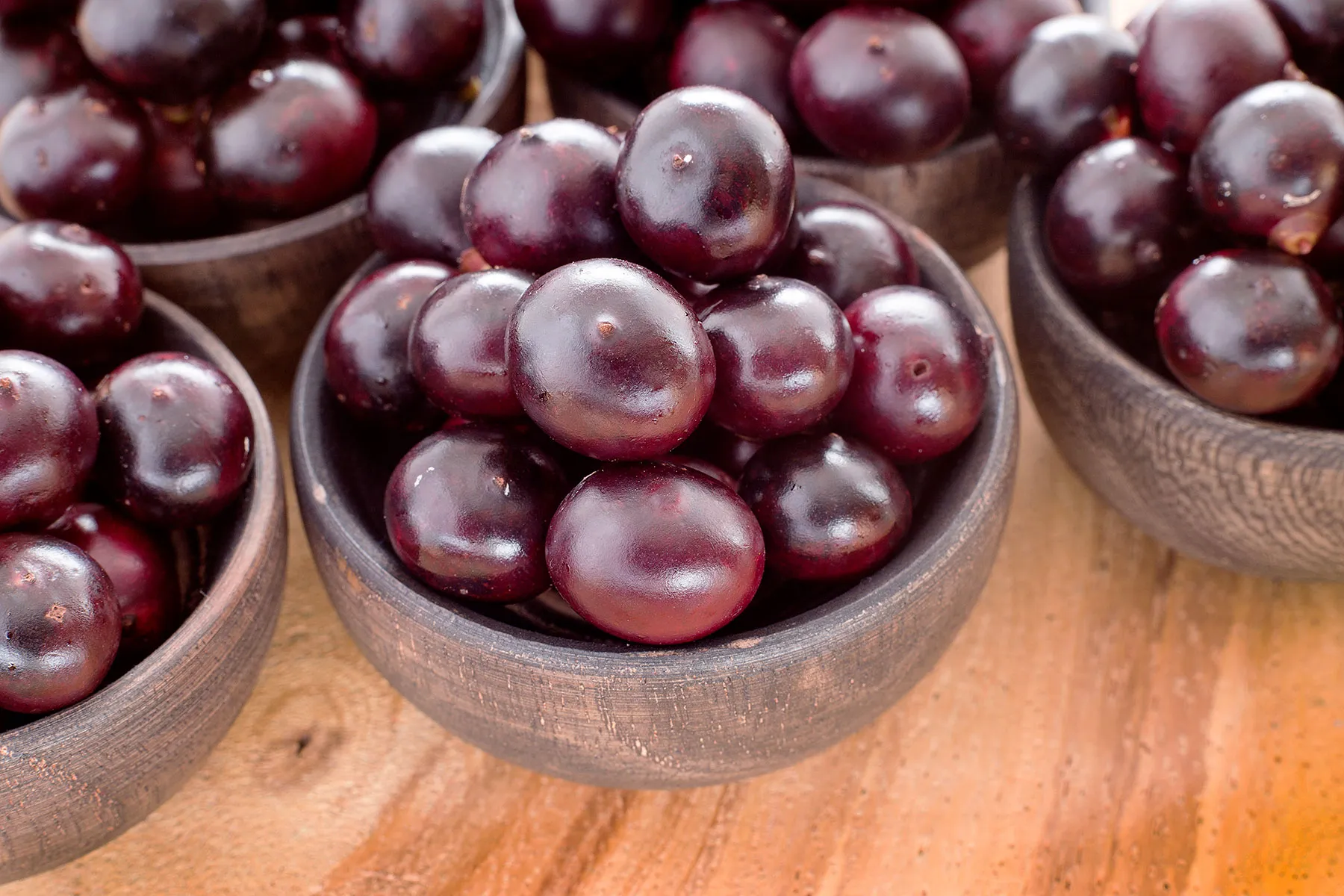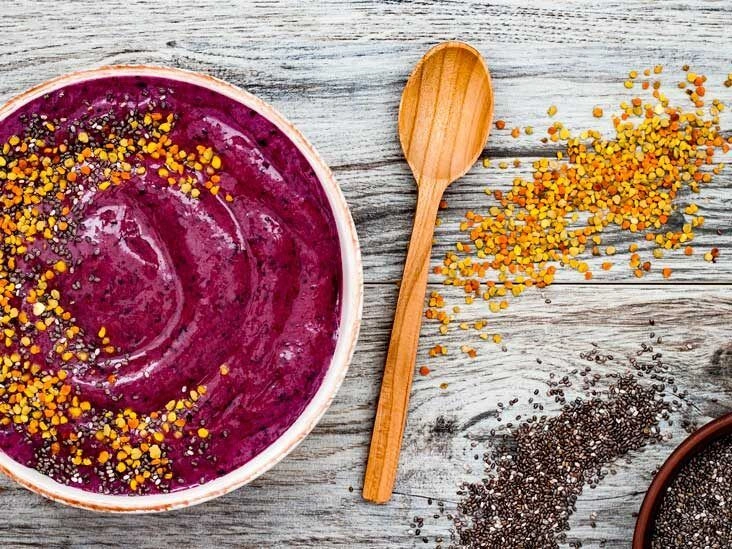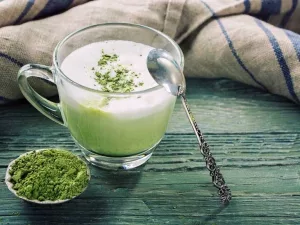Acai berries are rich in antioxidants, beneficial fats, and fiber. Their nutrient profile makes them a valuable addition to a balanced diet.
Native to Brazil, acai is considered a “superfruit.” It grows in the Amazon and is a traditional food source there.
Recently, acai has gained global attention and is often celebrated for its potential health-promoting properties.
This deep purple fruit is nutritionally dense and may offer several health advantages, including the five benefits discussed below.

What Are Acai Berries?
Acai berries are about 1 inch (2.5 cm) across and grow on acai palm trees in the rainforests of Central and South America. They have a dark purple outer skin and yellow flesh that surrounds a sizeable seed.
Because they contain pits like olives and apricots, they are technically drupes rather than true berries. Nonetheless, they are commonly called berries.
In the Amazon, acai frequently accompanies meals.
To make them edible, the tough outer skin is softened by soaking and then mashed into a dark purple pulp.
The flavor is earthy, often likened to a blend of blackberries and unsweetened chocolate.
Fresh acai spoils quickly and is not widely available outside its growing regions. For export, it’s typically sold as frozen purée, dried powder, or pressed juice.
Acai is also used as a flavor in various foods, such as jelly beans and ice cream, and non-food items like body creams may include acai oil.
Summary:Acai grows on palms in the Amazon and is processed into a pulp before consumption.
1. They’re Nutrient-Dense
Acai has an unusual nutrient composition for a fruit: relatively high in fat and low in sugar.
Per 100 grams of frozen purée, the nutritional content is approximately:
- Calories: 70
- Fat: 5 grams
- Saturated fat: 1.5 grams
- Carbohydrates: 4 grams
- Sugar: 2 grams
- Fiber: 2 grams
- Vitamin A: 15% of the RDI
- Calcium: 2% of the RDI
Research from Venezuela indicates acai also contains trace minerals like chromium, zinc, iron, copper, manganese, magnesium, potassium, and phosphorus.
Many of acai’s notable health effects are attributed to plant compounds.
The most prominent is anthocyanins, which give acai its deep purple hue and act as antioxidants in the body.
Anthocyanins are also present in other blue, black, and purple foods such as black beans and blueberries. For more on antioxidant-rich superfoods, see the benefits of maca root, which also discusses plant compounds and antioxidant benefits.
Summary:Acai supplies healthy fats, low sugar, several trace minerals, and plant compounds like anthocyanins.
2. They’re Loaded With Antioxidants
Antioxidants matter because they neutralize the harmful effects of free radicals in the body.
If free radicals aren’t neutralized, they can damage cells and contribute to conditions like diabetes, cancer, and heart disease.
Acai is exceptionally high in antioxidants, surpassing other antioxidant-rich fruits like blueberries and cranberries (4).
Food antioxidant content is often measured by the Oxygen Radical Absorbance Capacity (ORAC) score.
For acai, 100 grams of frozen purée scores about 15,405 on the ORAC scale, while the same amount of blueberries scores 4,669 (4).
This antioxidant potency stems from several plant compounds in acai, including anthocyanins (5).
In a 2008 trial, researchers gave 12 fasting volunteers acai purée, acai juice, applesauce, or an antioxidant-free drink at four different times and then measured antioxidant levels in their blood.
Both the acai purée and applesauce raised antioxidant levels, indicating the antioxidant compounds in acai are effectively absorbed in the gut.
The results also suggested acai purée provides more antioxidants than acai juice.
Summary:Acai is extremely rich in antioxidants, containing about three times the amount found in blueberries.
3. They May Improve Cholesterol Levels
Animal research suggests acai may improve cholesterol by lowering total and LDL (“bad”) cholesterol.
It’s possible similar benefits could occur in humans.
In one 2011 study, 10 overweight adults consumed acai smoothies twice daily for a month and experienced reduced total and LDL cholesterol at the study’s end.
However, this study had limitations: a small sample size, no control group, and funding from a major acai supplier.
Although more human research is required, the anthocyanins in acai might partly explain its cholesterol-lowering effects, as these compounds have been linked to improvements in HDL and LDL cholesterol.
Acai also contains plant sterols, which can block cholesterol absorption in the intestine.
Summary:Several animal studies and at least one small human trial indicate acai may help lower blood cholesterol.
4. They May Have a Possible Anti-Cancer Effect
No single food can guarantee protection from cancer, but some foods may help prevent cancer cells from developing or spreading.
Test-tube and animal studies have shown anti-cancer-like effects for acai.
In mice, acai purée reduced the rate of colon and bladder cancers in some studies.
However, another mouse study found no effect on stomach cancer.
Researchers suggest acai could play a role in future cancer therapies, but further research—especially human studies—is necessary.
Summary:In lab and animal studies, acai has shown promise as an anti-cancer agent, but human research is needed to confirm these effects.
5. They Could Boost Brain Function
Plant compounds in acai may help shield the brain from age-related damage.
Several studies in lab rats demonstrated protective effects on the brain.
Acai’s antioxidants counter inflammation and oxidative stress in brain cells, which can impair memory and learning.
One experiment found acai improved memory in aging rats.
Brain health is partly maintained by autophagy—the process of clearing out damaged or nonfunctional cells to make room for new ones, improving neuronal communication.
Autophagy becomes less efficient with age, but in laboratory studies, acai extract helped stimulate this cellular “clean-up” in brain cells (23).
Summary:Acai may help reduce inflammation and oxidative damage in the brain and support its cellular housekeeping processes.
Possible Drawbacks to Acai Berries
Because acai is a nutritious, antioxidant-rich fruit, it has few downsides.
However, avoid overhyping its health claims.
Although early research is encouraging, studies on acai’s effects in humans have been limited and small.
So, treat bold health claims with caution.
If purchasing processed acai purée, read the ingredient list to ensure no unwanted additives are included.
Some purées contain substantial amounts of added sugar.
Summary:Generally, acai is a healthy fruit with minimal downsides. Be vigilant about hidden sugars in processed products.
How to Eat Acai
Because fresh acai spoils quickly, it’s mainly exported as purée, powder, or juice.
Juice is high in antioxidants but also tends to be the sweetest and contains little fiber. When filtered, juice may lose some antioxidants.
Powdered acai provides a concentrated source of nutrients, including fiber, healthy fats, and plant compounds.
Purée is often the preferred way to enjoy acai’s taste.
To craft an acai bowl, blend unsweetened frozen purée with water or milk to create a smoothie-like base for toppings.
Common toppings include sliced fruit or berries, toasted coconut, nut butters, cocoa nibs, or chia seeds.
Acai powder can also be added to smoothies—blend it into your favorite recipe and finish with your chosen toppings. For ideas combining acai with other nutrient-dense ingredients, you might also read about the benefits of dates as a natural sweetener and topping option.
Summary:Acai is commonly consumed as frozen purée, powder, or juice.
The Bottom Line
Because of their high antioxidant content, acai berries may offer several health benefits.
They’re rich in plant compounds that function as antioxidants and may support brain health, heart health, and overall well-being.
Acai also supplies healthy fats and fiber, making it a generally nutritious food choice.
Enjoy acai in smoothies or bowls, but be mindful of added sugars often present in juices and some frozen purées.

























Leave a Reply
You must be logged in to post a comment.